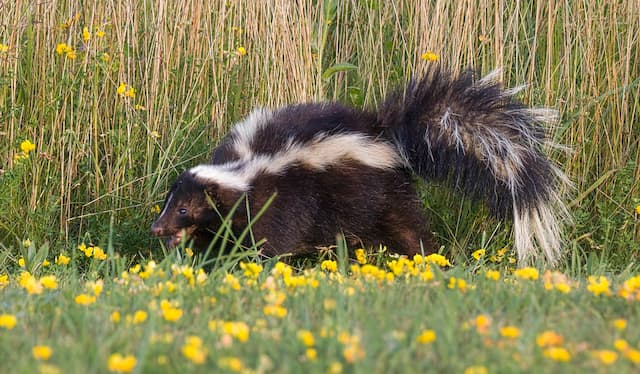In the domain of urban wildlife, the unassuming skunk is frequently in the spotlight, thanks to its distinct appearance and infamous defence mechanism – the pungent spray. Despite the fact that skunk encounters can be memorable for their pungent odour, there are more important factors at play. Understanding the potential health hazards posed by skunks to humans and pets is crucial for ensuring the safety of urban communities.
Rabies: An Alarming Danger
Rabies transmission is one of the most significant health hazards associated with skunks. Skunks are among the wild animals that are capable of carrying this virus, which affects the central nervous system and poses a grave threat to both humans and their companions. Despite the rarity of infected skunks, any interaction with a skunk should be approached with caution to reduce the risk of exposure.
Contact Information: The Concern for Pets
Due to their inquisitive and daring nature, pets may unknowingly approach skunks, placing them in danger of direct contact. A pet’s eyes, nose, and epidermis may be irritated by a skunk’s spray, which is its primary method of defence. In the event of contact, it is essential to thoroughly clean and bathe in order to minimize discomfort and potential health effects.
Indirect Contact Between Parasites and Illness
In addition to the direct effects of their discharge, skunks can indirectly affect the health of pets through parasites and diseases. Skunks are known to carry numerous parasites, such as fleas, lice, and mites. These parasites can infest areas frequented by skunks and affect pets as a result. In addition, skunks may be carriers of diseases such as leptospirosis and distemper, which can be transmitted to canines through contact with contaminated environments.
Preventing Encounters: Pet Safety Tips
Preventing canines from coming into contact with skunks is a proactive measure to reduce health risks. Keeping canines inside during the evening and nighttime, when skunks are most active, reduces the likelihood of encounters. In addition to preventing skunks from entering residential areas, securing garbage cans and eliminating potential food sources discourages their presence.
Human and Skunk Health
It is essential to recognize that skunks also pose potential health risks to humans, despite the fact that skunks are typically viewed as a threat to pets. The spray of a skunk can cause eye irritation, respiratory issues, and vertigo when inhaled directly. In some instances, allergic individuals may experience intensified reactions. To mitigate these effects, proper cleansing and decontamination procedures are essential.
Employing Professional Help
When skunks have taken up residence in or near human habitats, it is essential to seek professional assistance for their removal. Experts in skunk removal not only have the knowledge and equipment to safely handle the animals, but they also employ techniques that minimize stress and potential damage. Their expertise guarantees that skunks are relocated without endangering humans or animals.
A Comprehensive Strategy for Coexistence
Understanding the health risks associated with skunks is essential for promoting a harmonious coexistence between wildlife and humans in urban environments. By adopting preventative measures, prioritizing pet safety, and seeking professional assistance when necessary, we can mitigate potential health risks while maintaining the delicate equilibrium of our urban ecosystem. As custodians of these spaces, it is our duty to navigate the complexities of cohabitation while prioritizing the welfare of all inhabitants, furry and not.
